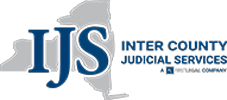Court News
First Legal is committed to providing you with the most accurate and up to date court notice information. If you have a colleague that is interested in receiving our court notices or newsletters, signing up is easy!
Sign up to receive important weekly court news and updates!
"*" indicates required fields
Latest Court News
Stay up to date with the latest court news and notices. Get informed about maintenance schedules, exams, and last-minute alerts.- To read, click the title to see the full notice.
- To sort by name or date, click the column name at the top to toggle between ascending
 and descending
and descending  order.
order. - You can also use the search bar to filter the titles by keywords or dates.
Court news created using accordion element (no pagination, sorting, filtering)
Click to View
Date
SISKIYOU COUNTY SUPERIOR COURT: EXTENDED COURTHOUSE CLOSURE 8/1 -8/5
August 1, 2021
Attention Siskiyou County Filers:
THE COURTHOUSE WILL BE CLOSED THROUGH FRIDAY, AUGUST 5, 2022
By Order of the Presiding Judge Karen L. Dixon, This is due to the continued danger of the McKinney Fire and no containment at this time. The Court will reopen on Monday, August 8, 2022, barring any new evacuation developments with the McKinney Fire. If you had or have a court hearing on Aug 1, 2, 3, 4, or 5, 2022, please be advised that those hearings will be continued to a future date, and you will be notified of that date.
You can visit the Court’s website here.
First Legal, your premier litigation support provider.
CONTRA COSTA COUNTY SUPERIOR COURT: EFILING SERVICE DISRUPTION
August 11, 2021
Attention Contra Costa County Filers:
Please be advised that Contra Costa Superior Court, Probate Division is currently experiencing an eFiling service disruption processing transactions.
The Contra Costa Probate team has asked that all new probate filings be submitted over the counter or in person due to their eFiling disruption until further notice.
If anyone has an existing transaction that needs immediate attention, please print the confirmation page, including the court’s transaction number, and submit in paper, over the counter. The court will file the documents as of the original submission date.
First Legal, your premier litigation support provider.


